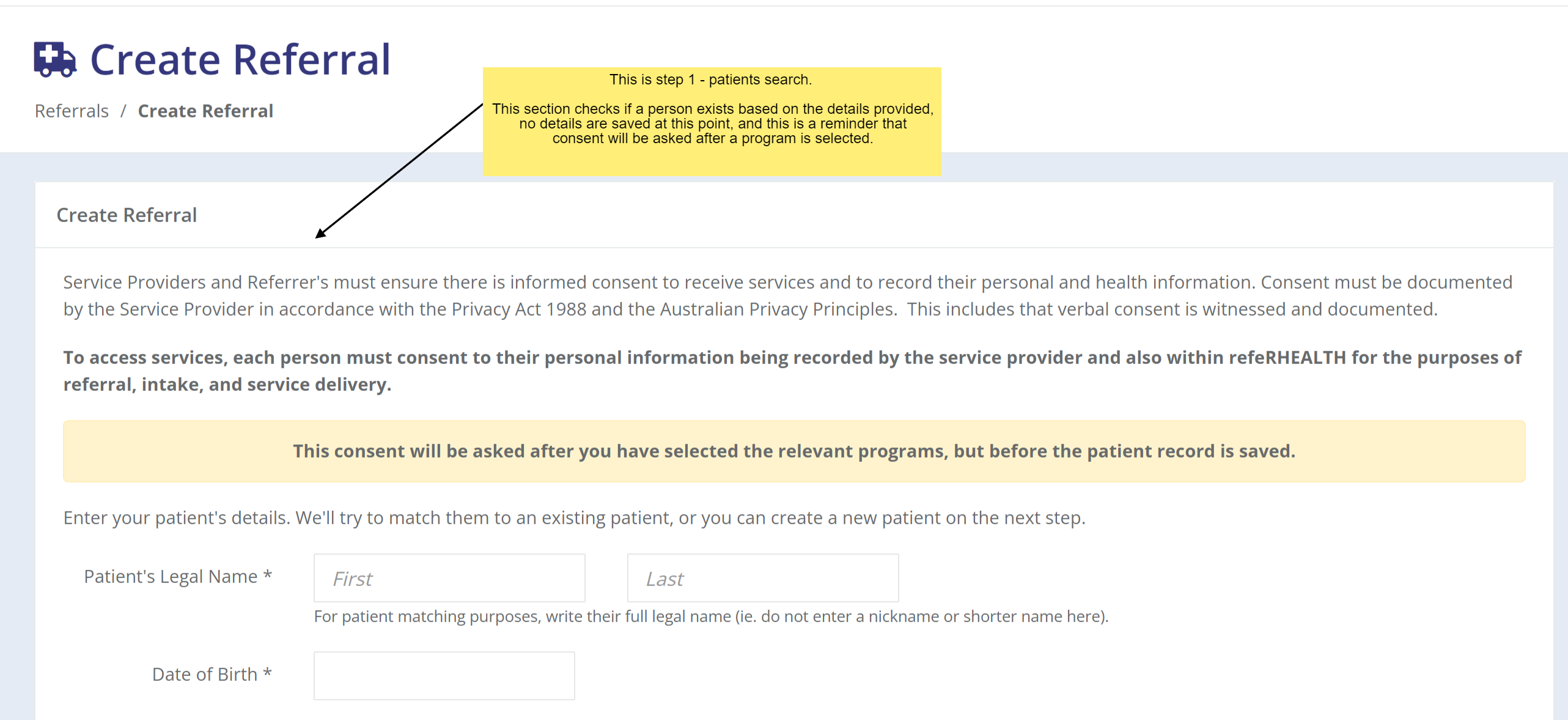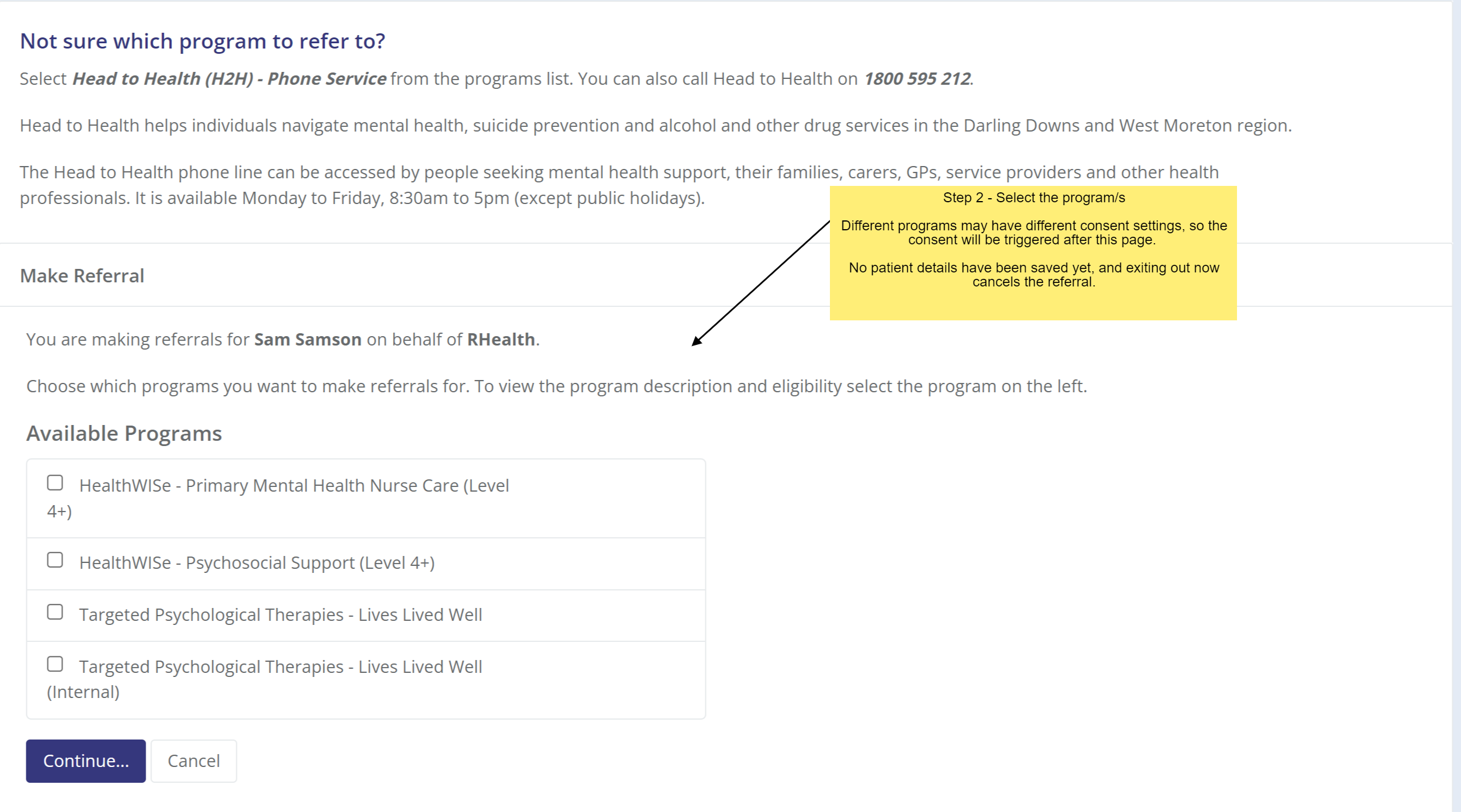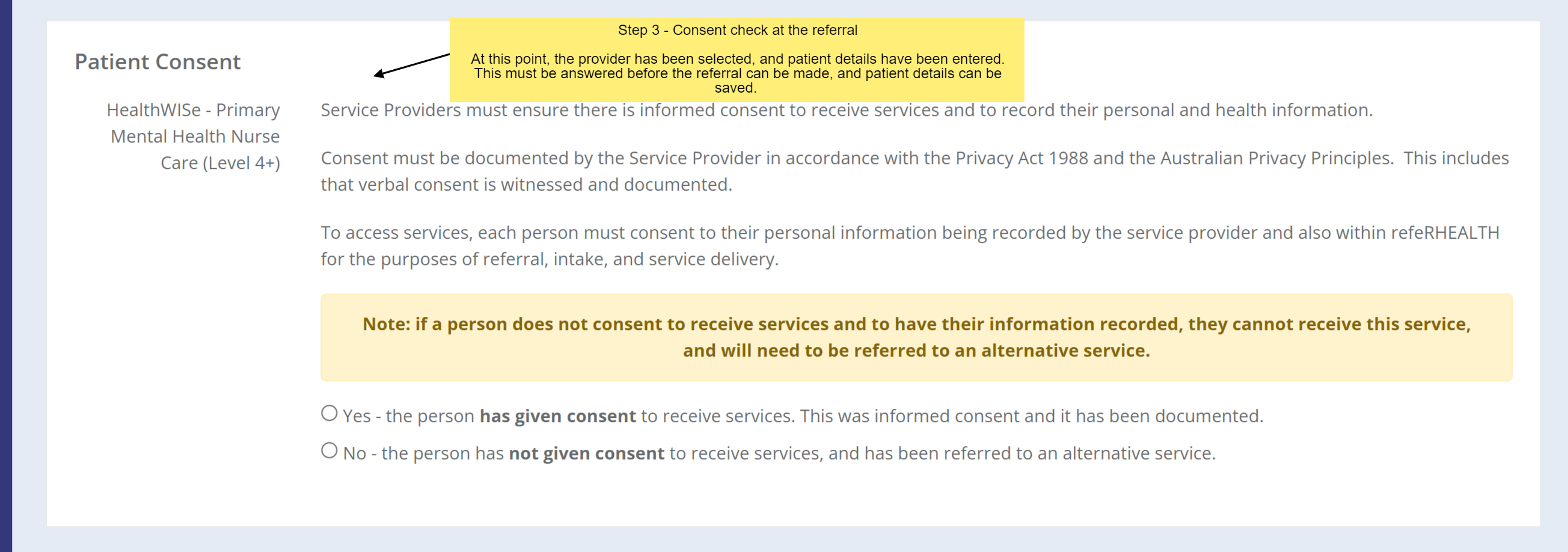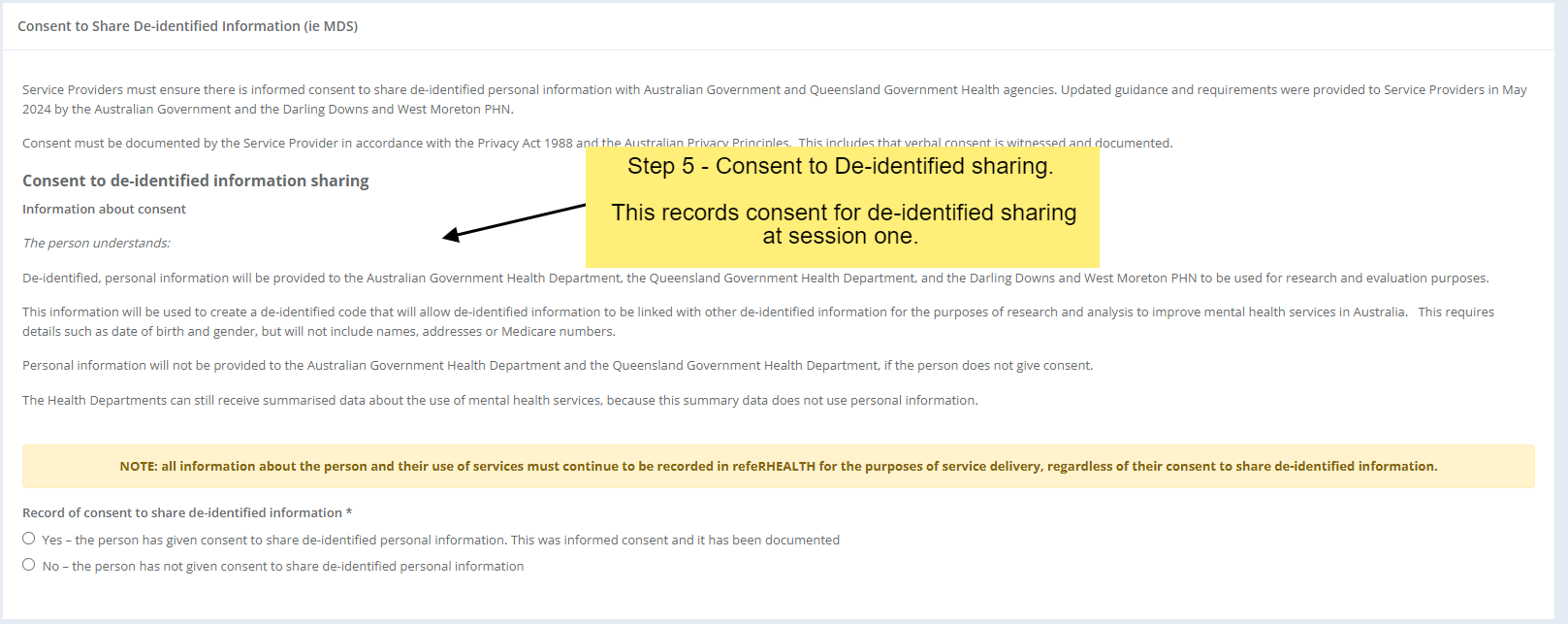The consent flow in refeRHEALTH has been updated to reflect recent changes issued by the Australian Government Department of Health and Aging (the Department) in April 2024.
This change covers the consent to participate in the service, which is required to receive services, and consent to share deidentified data with the Department, which is not required to receive services. It is important to note, that at all times, all information about a client and the services they receive must be recorded in refeRHEALTH.
The new flow is set out below, and effects new episodes of care only.
Please note – this document refers to ‘Episodes of Care’ and ‘Clients’, for clarity, an ‘Episode of Care’ is referred to as a ‘Referral’ in refeRHEALTH, and a ‘Client’ is referred to as a ‘Patient’ in refeRHEALTH. These terms are used interchangeably.
This is the prompt a user will receive when they begin making a new episode of care (referral). This section uses the client’s (patient’s) details to search if they exist already in refeRHEALTH. At this point, no details have been saved. The actual record of consent is taken after a program has been selected. If the client does not consent, and the user clicks ‘Cancel’ at this point, no details will be recorded.
If the user is making a new episode of care from an existing episode of care this section is skipped (step 2 onwards is the same however).

In this step, the user will select the program/s that the client will be referred to. This allows the system to identify the consent requirements (in case they may be different), which will be presented in the next screen (seen in ‘Step 3’) after the program/s have been selected.

This section collects the consent checkpoint/confirmation that informed consent has been gained, for the purposes of providing personal information to the service provider, for the purpose of delivering the service.

If consent is not given, the episode of care cannot proceed. The user can cancel the episode of care, and no details of the referral or person are saved to refeRHEALTH. At this point, alternative services should be discussed with the client, to ensure that they receive care as required.
If consent is given, the user can complete entering the episode of care as normal. This is the confirmation that informed consent has been gained by the referrer to proceed.
This is an additional consent checkpoint, that is identical to the consent checkpoint completed at the creation of the episode of care. This checkpoint verifies that consent has been gained at commencement of services by the provider for the purposes of providing personal information, for the purpose of delivering the service.

If consent is not given, the episode of care cannot proceed. The user will close the episode of care, with the reason being ‘Client declined services’. At this point, alternative services should be discussed with the client, to ensure that they receive care as required.
If consent is given, the user can complete entering the first session as normal. This is the confirmation that informed consent has been gained by the provider to proceed.
This consent relates to the sharing of de-identified information with the Department, Queensland Government and DDWMPHN. This question is mandatory; however, the client does not need to consent to data sharing in order to receive a service. Please note that the Health Departments can still receive summarised data about the use of mental health services, because this summary data does not use personal information.
Users should continue to record all details about the client and services delivered into refeRHEALTH, regardless of the response to this consent.

This must be collected for each referral the client receives.
